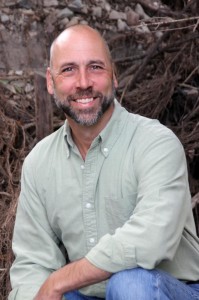Contributing Author – James Malmstrom, Monticello College Faculty
CHOMRONG VILLAGE, Nepal – 2011 – I was sitting in the courtyard of Chomrong Cottage, a charming lodge and the second stop of a 10-day trek into the Annapurna mountain range.
The towering snow-capped Himalayan peaks in the distance guarded the gateway to our final destination, a valley at the foot of the 10th tallest peak in the world, Annapurna I, and her seven surrounding sister peaks.
, our hostess for the night, was in the kitchen preparing dinner.
With an hour or two to spare, I engaged our guide and porter in the task of teaching me the Nepali Sanskrit alphabet.
They carefully inscribed the 36 letters into my notebook.
When I learned that each letter also had a corresponding half-letter form and that there are an additional 12 vowels, I realized this lesson would have to continue into the days to come.
After several tries, I knew from the smiles on my teachers’ faces that I had finally managed to legibly write namaste, the universal Nepali greeting.
Satisfied for the moment, I thanked them and expressed the joy it is to learn other languages.
I mentioned that I was also learning Hebrew.
At that, my guide pointed over my shoulder and said, “You should talk to him.”
I glanced over and was surprised to see a young man sitting about 10 feet away, his feet propped up on the courtyard wall, a book in his hands.
 I had overheard him and his trekking companion earlier in the day negotiating for a room, but I had been so engrossed in my Sanskrit lesson that I had not sensed him coming out to enjoy an evening of reading next to us.
I had overheard him and his trekking companion earlier in the day negotiating for a room, but I had been so engrossed in my Sanskrit lesson that I had not sensed him coming out to enjoy an evening of reading next to us.
At the mention of Hebrew, he glanced up.
He acknowledged being from Israel, a student attending the university.
With a quizzical expression he asked, “Why are you interested in Hebrew? It’s not a very practical language, outside of Israel at least. Where would you use it?”
He had no idea what a loaded question that was.
I led off with a simple, seemingly safe, response, “Well, I want to read the Old Testament in Hebrew, the Tanakh.”
I could tell by the look on his face that he was less than impressed.
I glanced down at the book he held in his hands and understood why—Ayn Rand’s The Fountainhead. I soon learned that he was enchanted with her philosophy of rationalism and logic.
That became the catalyst to a very interesting conversation about the merits and limitations of that epistemology…but that is a topic for another time.
 The call to dinner interrupted our discussion before I could return the conversation to the virtues of studying Hebrew. I had so much more I wanted to discuss with him, but unfortunately the opportunity was lost.
The call to dinner interrupted our discussion before I could return the conversation to the virtues of studying Hebrew. I had so much more I wanted to discuss with him, but unfortunately the opportunity was lost.
So, to my new Israeli friend, Gabi, (and any others who may be interested) please…allow me to continue.
Why study Hebrew?
As a general rule, that question is posed with the same quizzical look that Gabi had on his face.
That same question, but from the other end, could just as well be asked of Monticello College. Why teach Hebrew?
Why would a fledgling liberal arts college located in the Blue Mountains of southeastern Utah claim Hebrew as its central classical language?
Surely it must be more than a marketing gimmick.
Few people know to even ask what the central language of an institution of higher learning is; even fewer would expect Hebrew to be one of the possibilities.
The central language defines the educational mores, the environment, and the curriculum; and influences the values and goals of an institution.
Greek is the language of knowledge. Schools that emphasize the Greek classics (Plato, Aristotle, Homer, Thucydides, etc.) in their curriculum primarily train “thinkers”—scholars, philosophers, and academics.
Latin, on the other hand, is the language of power, instructing from the medieval classics (Plutarch, Machiavelli, Hobbes, Augustine, etc.) in the nuances of business, government, and law.
Of course, the central language of most universities today, whether by deliberate choice or by default, is the language of the job market: pragmatism.
Students are primarily trained in a practical set of skills to fashion them into a marketable commodity for employers.
So, if not of knowledge, power, or employment…of what is the language of Hebrew?
I answer the question in part with another question: What is an education, and what is its purpose?
**********************************
 Shanon Brooks is the President of Monticello College, the Director of Education and Training for Humanitarian Visions International, S.A., and a founding partner of the Center for Social Leadership. He co-authored Thomas Jefferson Education for Teens.
Shanon Brooks is the President of Monticello College, the Director of Education and Training for Humanitarian Visions International, S.A., and a founding partner of the Center for Social Leadership. He co-authored Thomas Jefferson Education for Teens.
Shanon and his wife Julia are raising their six children in Monticello, Utah.







Speak Your Mind
You must be logged in to post a comment.